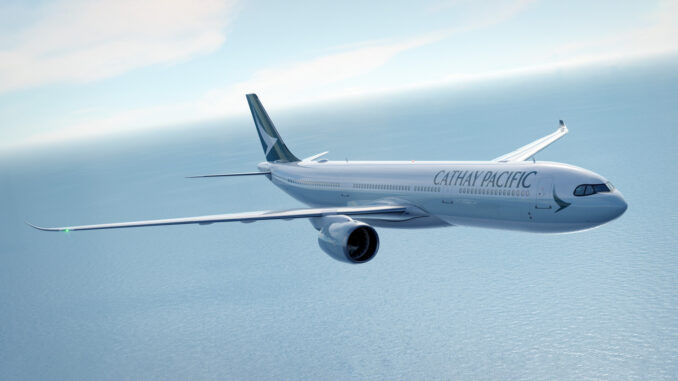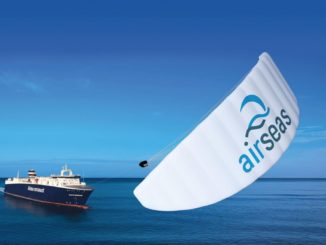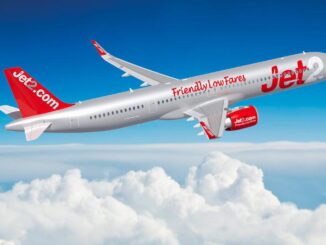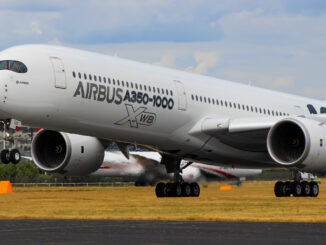
Cathay Group has placed a firm order with Airbus for 30 A330-900 (A330neo) airliners as looks to renew its mid-sized wide-body fleet.
The new aircraft will replace older A330-300 airliners which have been serving Cathay Pacific for nearly 30 years.
Ronald Lam, Cathay Group Chief Executive Officer said: “As Cathay completes the final stretch of its rebuilding journey, we are turning the page to modernisation and growth, both in terms of scope and quality. We are delighted to announce this new order for state-of-the-art A330neo aircraft. This substantial investment reflects not only our immense confidence in Hong Kong’s leading international aviation hub status, but also represents our commitment to fostering our home city’s ongoing development.”
The A330-900 will be deployed on the Asian carrier’s high-density routes as well as allowing it to operate to longer-haul destinations than the -300 variant.
Powered by Rolls-Royce Trent 7000 engines and with wings made in Broughton, North Wales, the A330-900 can fly up to 7,200nm and is fitted out with Airbus’ Airspace cabin.
Lam added: “These new aircraft will principally serve our regional destinations in Asia, while also providing the flexibility to serve longer-haul destinations as required. The improved fuel efficiency of these A330neos, together with their high standards of comfort, will enable us to further elevate the experience we provide for our customers while also contributing towards our goal of net-zero carbon emissions by 2050.”
Christian Scherer, Airbus Chief Executive Officer, Commercial Aircraft said: “This latest order from Cathay, one of the world’s most experienced A330 operators, is a major endorsement of the latest generation A330neo. It is the natural successor for existing A330 fleets, bringing the highest levels of technical and operational commonality, and significant reductions in fuel consumption and carbon emissions. In addition, the award-winning Airspace cabin provides a whole new flight experience.”
The A330neo is capable of flying on a blend of Sustainable Aviation Fuel (SAF) up to 50% but Airbus aims to be certified for 100% SAF by 2030.




